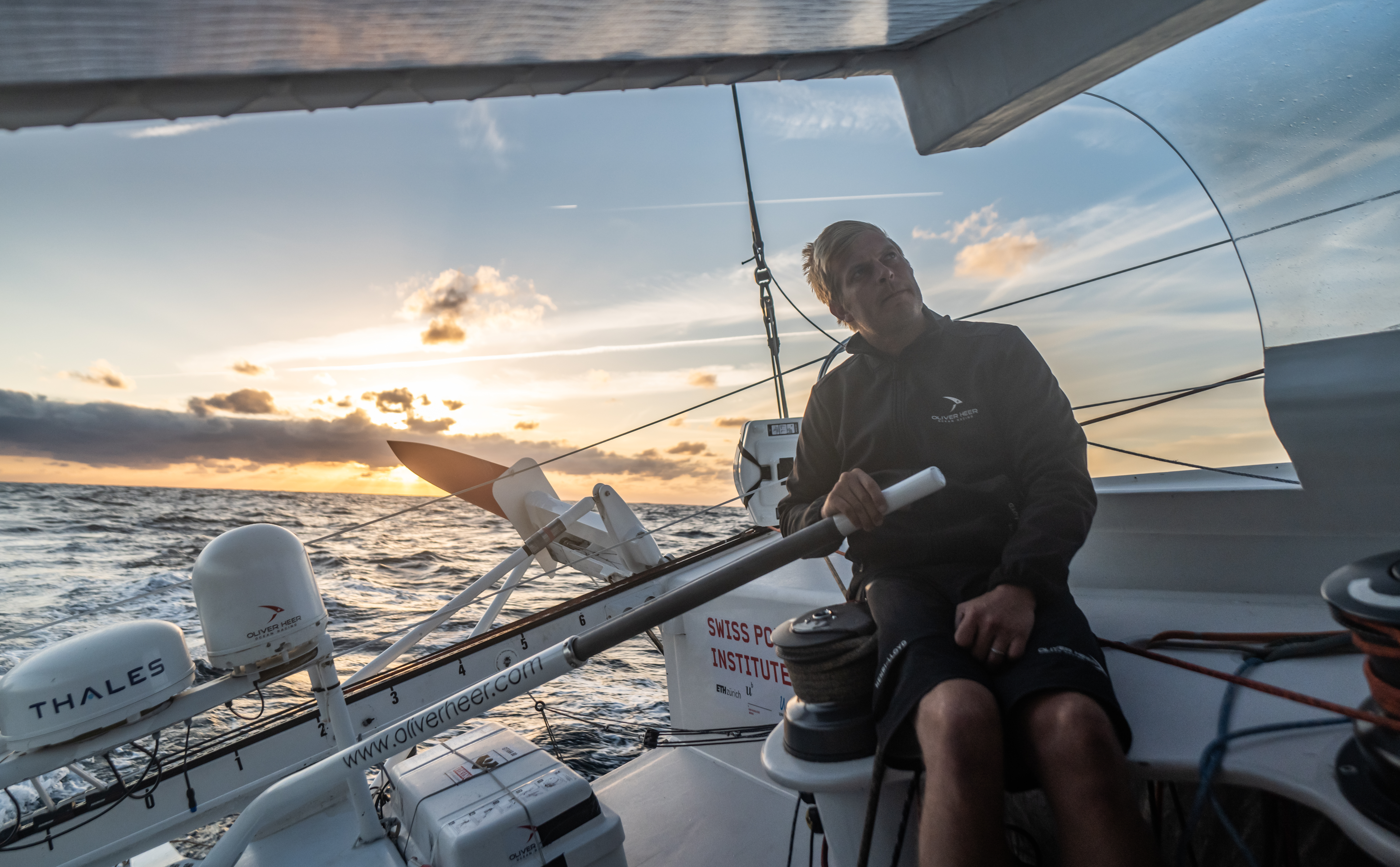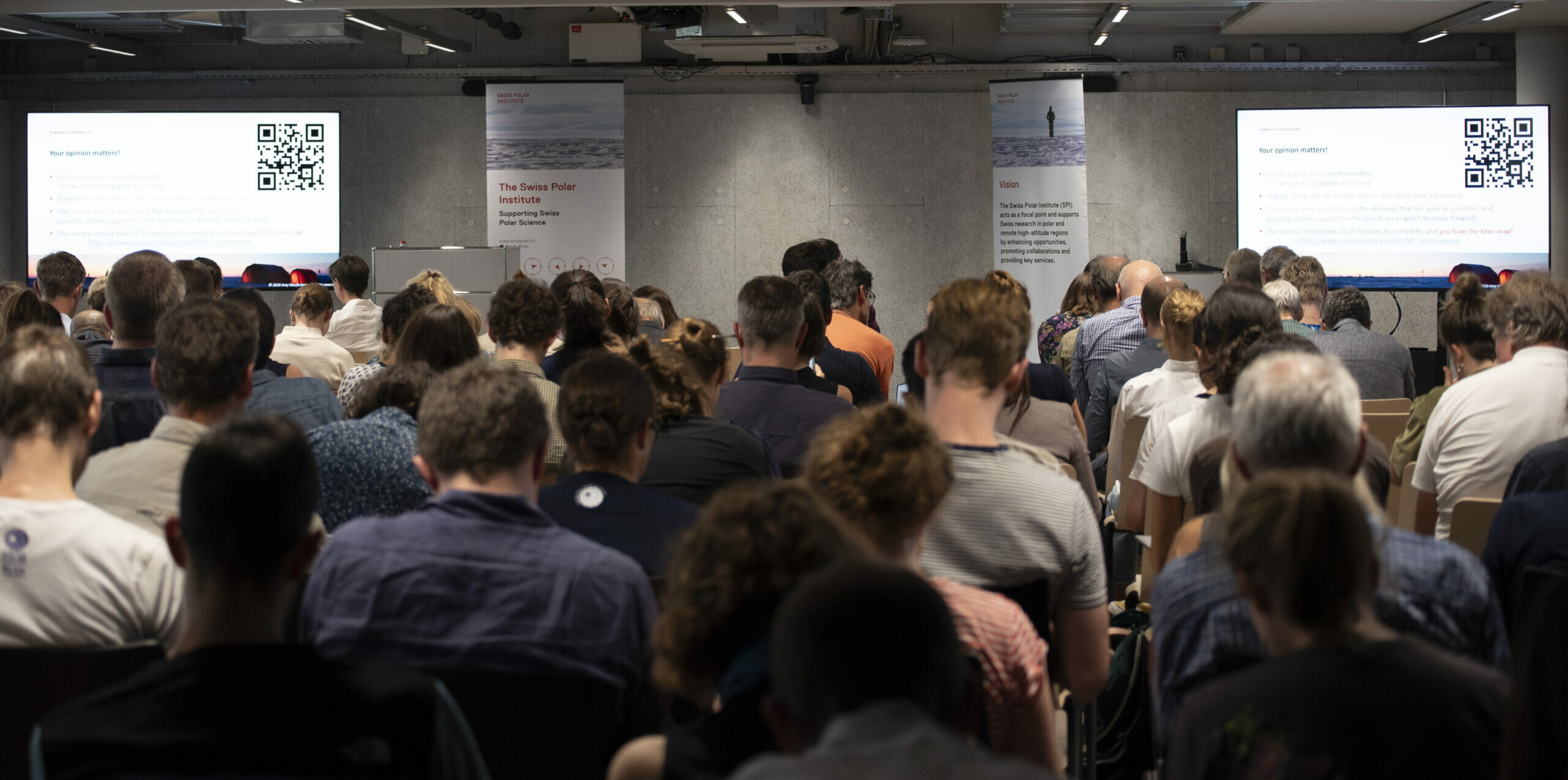Our commitment to support Swiss polar and high-altitude science
The Swiss Polar Institute (SPI) funds and supports Swiss polar and high-altitude research in Switzerland. SPI is committed to the Swiss scientific community by:
- Developing initiatives and programmes to strengthen cutting-edge Swiss polar research that addresses global challenges;
- Facilitating access to international research infrastructure and strategic polar science initiatives;
- Federating the Swiss polar science community with a specific emphasis on interdisciplinary integration and the emergence of a new generation of scientists;
- Enhancing the visibility and relevance of polar science with the Swiss public;
- Supporting innovative partnerships and activities to better understand the links between the local and polar dimensions of climate change.
Our history
The Swiss Polar Institute (SPI) was created with a bottom-up approach in April 2016 as a consortium of Swiss universities – EPFL, the University of Bern, Swiss Federal Institute for Forest, Snow and Landscape Research WSL, ETH Zurich, University of Lausanne, University of Zurich – with support of private philanthropy and under the patronage of the State Secretariat for Education, Research and Innovation (SERI). Since 2021, the Swiss Polar Institute is a private foundation with public and private funding and has been recognised by the SERI as a “research institution of national importance”.
Originally based at the EPFL Campus in Lausanne (Vaud), the SPI relocated to the Alpine and Polar Environmental Research Centre (ALPOLE) on the Energypolis Campus in Sion (Valais, Switzerland) in December 2022. This new setting amidst the Swiss Alps enhances SPI’s support to and collaborations with the vibrant Swiss scientific community.
Shared values for driving positive change
In all its activities, SPI fosters diversity and interdisciplinary collaboration, and pays particular attention to the environmental impact of polar and high-altitude fieldwork. Sustainability is one of the cornerstones of SPI’s values alongside agility, equality and integrity and is embedded in SPI’s strategic and operational activities.
In consultation with the Swiss polar community, the Swiss Polar Institute has defined principles that guide its actions for long-term positive impact of excellent science and an inclusive culture of sustainability:
- Reduce environmental impact across all SPI activities: From the operations of the Secretariat to science funding, the environmental impact is assessed and addressed with the aim to achieve a maximal positive impact relative to SPI’s scope.
- Promote the development and use of environmentally friendly technology: SPI seeks to harness the Swiss engineering potential and to provide innovative clean technological solutions for more environmentally friendly polar research.
- Devise, apply and share best practice: SPI advocates for an active and responsible approach by funders and operators alike. Through its measures, SPI paves the way for greater sustainability in polar science by devising new approaches, sharing knowledge on best practices while promoting scientific excellence.
- Seek innovative alternatives to carbon offsetting: SPI uses carbon offsetting only as a last resort and seeks to take an exemplary and creative stance throughout its actions by contributing to congruent discussions and developments in the science community.
The SPI considers sustainability not only as a goal and a set of practices but also as a process that requires continuous efforts and long-term commitment, whilst nurturing a critical and resilient stance.
since 2016 ➤
Responsible internal policy
Since its inception, the SPI has offset its Secretariat’s carbon emissions with MyClimate. Offsetting being only the beginning of the journey towards sustainability, our internal policy has offered incentives to encourage soft mobility and the use of public transport for commuting and professional travel. From stationery to beverages supplied at the workplace, SPI has strived to provide recyclable and fair-trade goods from local suppliers. Parked outside SPI’s premises, a fleet of second-hand bicycles acquired in 2023 offers an alternative to walking or taking motorised transport.
since 2017 ➤
Eco-friendly approach to events
Events are part of the services SPI offers to the scientific community. Our approach aims to limit the carbon emissions of our events on various levels: choice of venue easily accessible by public transport, vegetarian catering with local and seasonal produce, reusable tableware, and sobriety in advertisement with sparing print runs on eco-certified paper.
Less is more: our stance on branded goodies
SPI’s choice of branded items has evolved over the years into a mindful selection oriented by their usefulness, reusability, quality, sustainable manufacturing and availability from local suppliers: winter hats for SPI grantees’ field campaigns, cotton tote bags, and pencils made of locally sourced wood.
since 2019 ➤
Funding instruments & CO2 compensation
Funding instruments are one of SPI’s core activities that facilitate research in polar and remote high-altitude regions for the Swiss scientific community. Our first step included CO2 compensation as an eligible cost in all SPI grants, and a request to beneficiaries to reduce the environmental impact of conducted fieldwork whenever possible. In 2021, this was extended to the Arctic Century Expedition (ARCEN).
since 2020 ➤
Hybrid attendance & teleworking
The COVID pandemic was a catalyst to map areas for resilient action with positive impact. Temporarily imposed teleworking and hybrid attendance made it to our permanent internal and events policies, consolidating a trusting work culture and environment. The updated internal policy includes teleworking incentives while preserving team spirit and operational effectiveness.
Sharing international expertise:
Engaging in global discussions on research in the Arctic
Environmental aspects of polar research are a global challenge. Since 2020, SPI has participated in various working groups, such as organised by the International Arctic Science Committee (IASC), the European Board (EPB) and the Forum of Arctic Research Operators (FARO) to discuss, devise and share best practice.
At the Arctic Circle Assembly 2024, SPI and Alfred Wegener Institute (AWI) co-organised sessions on floating platforms and other alternative means of accessing polar regions and the importance of coordinated effort to tackle the sustainability challenges of research. In July 2025, experts from offshore sailing and polar science communities gathered on Föhr (Germany) to resume the exchange on environmental impact, best practices and complementary expertise initiated at the Arctic Circle Assembly. The workshops concluded on key elements that will provide a strong foundation for a white paper and consolidate best practices and sustainability efforts.
since 2022 ➤
Engaging in discussions on international cooperation in Antarctica
Since 2022, SPI has actively participated in the COMNAP Environmental Working Group aiming to understand challenges, build on cooperative programmes and shared expertise on environmental aspects of scientific research specific to Antarctica.
Federating expertise & making it count: extreme sailing meets scientific research
In 2022, SPI partnered with Swiss skipper Oliver Heer and had scientific instruments fitted aboard his IMOCA 60 sailing yacht. From 2023 onwards, the instruments have collected ocean data during the training and racing stages of the Vendée Globe. It is a unique opportunity for science to collect data in a globally critical yet understudied ocean region and to do so in an environmentally sound manner. This campaign also federates internationally renowned Swiss research groups at ETH Zurich, the University of Bern and the University of Lausanne.
The project is embedded in a bigger conversation on innovative platforms with smaller footprint as alternative means of accessing and conducting fieldwork in polar regions.

2023
Workshop on the environmental impact of fieldwork for early-career researchers
Our annual workshop for early-career researchers included a panel of national and international experts from APECS International, the European Polar Board, WSL&EPFL, and the French Polar Institute IPEV. The online event marked another step towards raising awareness by offering a rich overview of current best practices and challenging aspects of scientific research in fragile polar and high-altitude regions.
Bottom-up approach: community survey
Launched on the Swiss Polar Day, the survey aimed at gathering the views of the Swiss polar and high-altitude community on the carbon emissions of research in those regions. The results fed the discussions within the SPI Science & Technology Advisory Board and contributed to shaping our activities.

since 2024 ➤
Revised funding instruments to minimise negative impact
Based on the results of the community survey on sustainability and polar research, we revised our funding instruments to assess and lower the carbon footprint of Swiss scientific research. Changes include cleantech and alternative data acquisition methods. This revision put in place new framework conditions that stem from our wider and long-term commitment to support Swiss polar and high-altitude science while adopting a resilient and inclusive approach.
CO2 assessment tool
The revision of calls also encourages applicants to consider their projects’ emissions and to make informed decisions to mitigate their footprint whenever possible. To this end, we developed an easy-to-use CO2 assessment tool to assist applicants in calculating the projected and effective carbon emissions of their projects.
As a funding organisation, we welcome community suggestions for improving this tool and pursuing the journey towards more environmentally sound and sustainable science practices together.
since 2025 ➤
SPI FOREL Grants
Managed by the Forel Heritage Association, FOREL is a 28-metre-long sailing boat with an aluminium hull dedicated to oceanographic research in polar and sub-polar regions, specifically in coastal areas inaccessible to larger research vessels. The SPI FOREL Grants support Swiss-based scientists who wish to use the FOREL Research Platform in such environments by allowing them to launch short-term new ideas, fund additional fieldwork or start new collaborations with financial support for logistics while minimising the environmental footprint of fieldwork.
in 2025
Collaboration with Team Malizia to further the ocean data collection campaign
After their successful partnership for the Vendée Globe campaign, SPI and the Swiss skipper Oliver Heer collaborated with Team Malizia by lending their OceanPack to the new research vessel Malizia Explorer. SPI thus continues to enable data analysis with ETH Zurich and the Universities of Bern and Lausanne, highlighting once more how the offshore sailing and scientific communities join forces to further ocean and climate research.